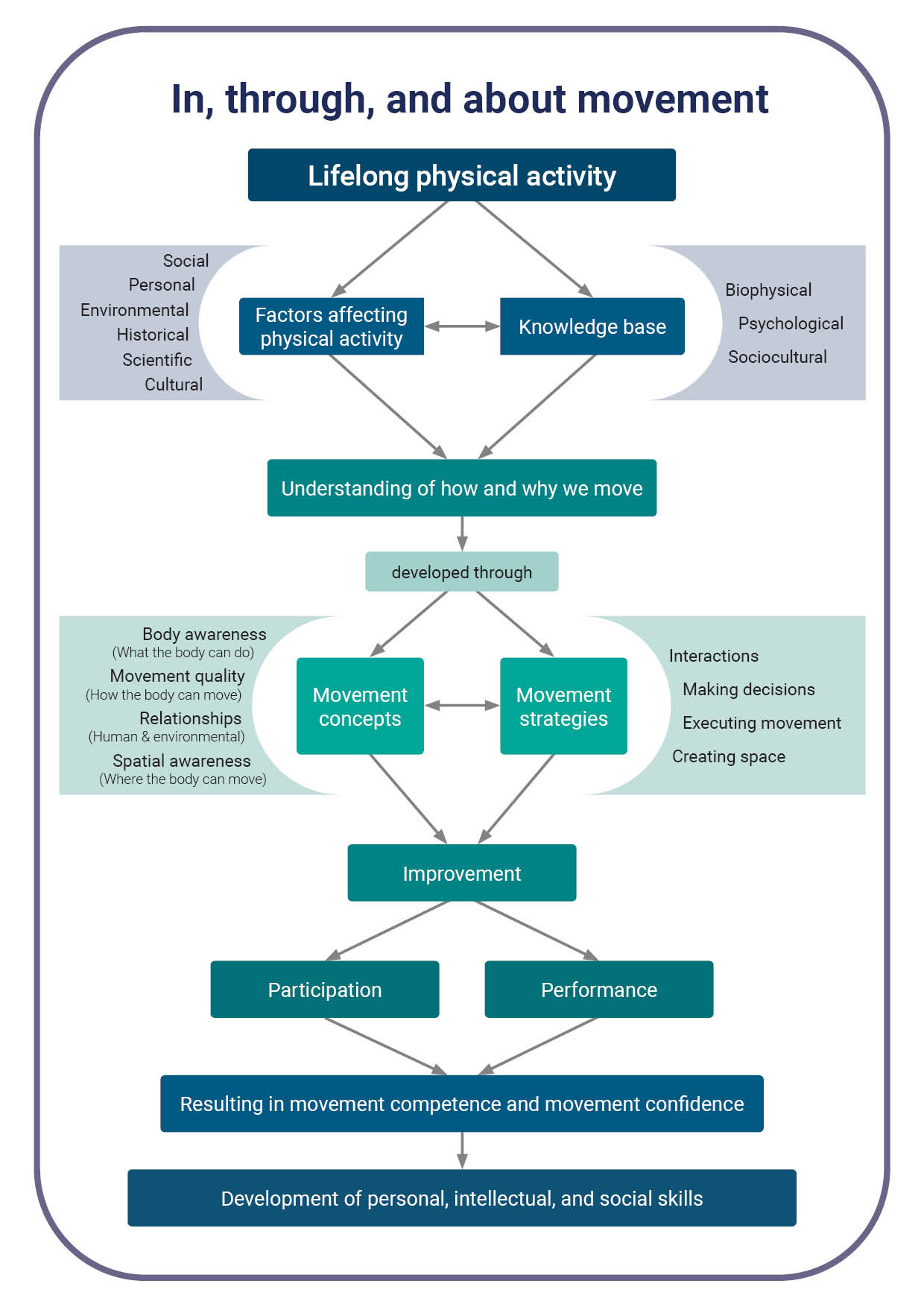Stage 1 | Subject Outline | Versions control
Physical Education
Stage 1
Subject outline
Accredited in November 2017 for teaching at Stage 1 from 2019. Refer to subject changes.
Stage 1 | Subject outline | Subject description
Subject description
Physical Education may be undertaken as a 10‑credit subject or a 20‑credit subject at Stage 1.
Through Physical Education, students explore the participation in and performance of human physical activities. It is an experiential subject in which students explore their physical capacities and investigate the factors that influence and improve participation and performance outcomes, which lead to greater movement confidence and competence. An integrated approach to learning in Physical Education supports an Arnoldian1 educational framework that promotes deep learning ‘in, through, and about’ physical activity. The application of this framework ensures students make meaning of the cognitive and psychomotor processes fundamental to the learning of physical activity.
Education ‘in’ physical activity involves students making meaning of personal movement experiences. Through these movement experiences, students engage in thoughtful participation where skills of internal reflection and articulation of learning progress are developed. These movement experiences involve students in the assessment process and this in turn enhances their metacognition.
Education ‘through’ physical activity involves students using movement to strengthen their personal, intellectual, and social skill development. Such skill development allows students to engage more purposefully in physical activity. Students use physical activity contexts as the vehicle for developing the capabilities and skills necessary to reflect on and critique their learning in order to enhance participation and performance outcomes.
Education ‘about’ physical activity involves students developing an understanding of biophysical, psychological, and sociocultural domains through participation in physical activity. The biophysical domain includes learning and applying exercise physiology and biomechanical concepts. The psychological domain develops an understanding of skill acquisition and learning theory concepts. The socio‑cultural domain develops knowledge and understanding of, and skills to take responsible action related to, barriers, enablers, equity, and inclusivity in physical activity. These domains are developed through the exploration of movement concepts and strategies within physical activity contexts.
Physical activities can include sports, theme-based games, laboratories, and fitness and recreational activities. Classes can undertake a single‑focus approach (e.g. single sport) or can undertake multiple sports, games, and/or activities.
1 Arnold, PJ 1979, Meaning in movement, sport and physical education, Heinemann, London.
Arnold, PJ 1988, Education, movement and the curriculum: a philosophic inquiry, Falmer Press, London

